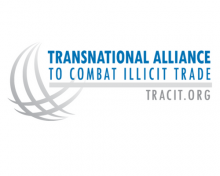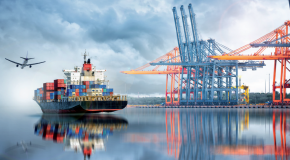- Europe is the best-performing region and by a significant margin.
- The Asia-Pacific region places second, followed by the Americas and Middle East and Africa.
- The overall score across the 84 economies is just 60.0 (out of 100), with the supply and demand and transparency and trade categories being the worst.
Finland has the best environment for preventing illicit trade, according to The Global Illicit Trade Environment Index released today by The Economist Intelligence Unit (EIU). The Index, commissioned by The Transnational Alliance to Combat Illicit Trade (TRACIT), looks at 84 economies. Finland tops the government policy category and ranks 5th in the supply and demand category.
Europe is the best performing region of the four in the index, scoring twelve points higher on its overall score than the next closest region, Asia. Europe tops all categories in the index, including the customs environment, where it scores 79.0, far above than the three other regions.
The Asia-Pacific, which includes 21 economies, comes second, ahead of the 19 economies in the Americas region and ten economies of Middle East and Africa. No region outside of Europe performs particularly well, with average scores ranging from a low 42.0 in supply and demand for the Americas to 63.0 in customs environment for the Asia-Pacific. The Middle East and Africa region is dragged down by the presence of Libya and Iraq, two almost-lawless economies that score at or near the bottom of all the categories and indicators.
The main white paper also looks at the results of key indicators related to corruption, cyber security and intellectual property protections, and transparency and human trafficking. In these and other areas of illicit trade, the results of the index are dispiriting, with the overall average score being just 60.0; the supply and demand and transparency trade categories were generally the worst in the index. The paper is published along with a series of a regional paper and a brief focused on free trade zones.
Chris Clague, the author of the main white paper, said: “More can and should be done when it comes to combatting illicit trade, especially because it helps to fund the operations of transnational organised crime and international terrorist organisations. Governments around the world have a variety of policy measures at their disposal, including some very low-hanging fruit like enforcing rules and regulations that are on the books with regards to monitoring and enforcement of free trade zones and improving their international reporting of data on drugs, human trafficking and intellectual property theft.”
The index, online data visualisation tool and the various reports that are being published can all be found at illicittradeindex.eiu.com .
Press enquiries:
Tokyo: Chris Clague, managing editor Asia and global editorial lead, Trade & globalisation
+ 81 3 5223 2662
Jusnita Chang, senior marketing manager, content solutions, Asia
+65 6428 2659
Notes to editors
The Global Illicit Trade Environment Index comprises four categories: government policy, customs environment, trade and transparency, and supply and demand. Each category includes between four to seven indicators for a total of 20, were selected based on the results of an extensive literature review and input from a panel of external experts.
The 84 economies were selected in order to obtain a representative mix of geographies, population and level of development.
A full explanation of the index methodology can be found in the appendix of the main report.
About The Economist Intelligence Unit
The Economist Intelligence Unit is the world leader in global business intelligence. It is the business-to-business arm of The Economist Group, which publishes The Economist newspaper. The Economist Intelligence Unit helps executives make better decisions by providing timely, reliable and impartial analysis on worldwide market trends and business strategies. More information can be found at www.eiu.com or www.twitter.com/theeiu.
About The Transnational Alliance to Combat Illicit Trade (TRACIT)
TRACIT is an independent, business-led initiative to mitigate the economic and social damages of illicit trade by strengthening government enforcement mechanisms and integrating supply chain controls across industry sectors. More information can be found at www.TRACIT.org or www.twitter.com/tracit_org




